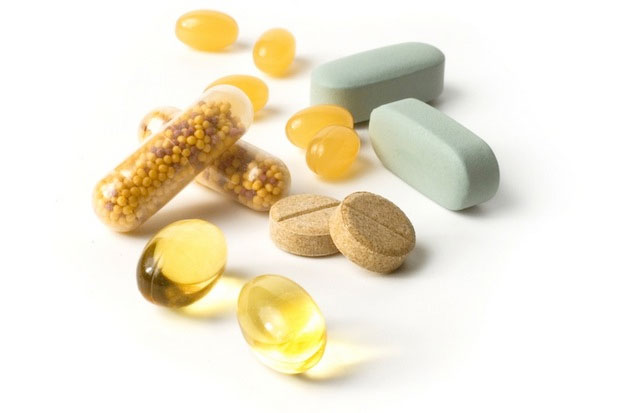Some Brain & Workout Supplements Contain Unapproved Drugs

Some supplements marketed as brain boosters and workout enhancers contain prescription drugs that are not approved in the United States, a new study says.
One drug that was found in the supplements, called vinpocetine, has a side effect that decreases blood pressure. Another drug, picamilon, has not been thoroughly tested for side effects in people, but could potentially interact with sedative medications and enhance their effects, said study co-author Dr. Pieter Cohen, an assistant professor of medicine at Harvard Medical School.
Both drugs are prescribed in other countries, including Germany and Russia, for conditions affecting the brain and blood flow, but neither drug has been approved by the U.S. Food and Drug Administration. What's more, although these drugs are similar to compounds found in nature, both drugs are man-made, and so don't meet the FDA criteria for compounds that are allowed in "dietary supplements."
The new study found that doses of these drugs varied widely in supplements sold in the United States. For some supplements, the amount that a person might take in a day contained several times the dose of these drugs that would be given in a prescription.
But prescription drugs need to have clearly defined and accurate doses, because a drug's effects are tied to its dose, Cohen said. In these supplements, the drug dose is "completely unpredictable," Cohen said. [Wishful Thinking: 6 'Magic Bullet' Cures That Don't Exist]
The FDA should remove supplements containing vinpocetine or picamilon from the market, Cohen said. And identifying supplements with these drugs would not be too difficult, because the drugs are not "hidden" — many supplements list them openly as ingredients on the label, Cohen said. "The FDA wouldn't have to go further than the label to know this is adulterated," he said.
In the new study, the researchers analyzed 23 supplements that listed vinpocetine on the label — most were marketed as attention and memory boosters — and 31 supplements that listed picamilon on the label, which were typically marketed as "preworkout" supplements.
Sign up for the Live Science daily newsletter now
Get the world’s most fascinating discoveries delivered straight to your inbox.
About 75 percent of vinpocetine supplements, and 54 percent of picamilon supplements, did not list the quantity of the drug on the label.
An analysis of vinpocetine supplements found that a daily serving of the supplements contained between 0.3 milligrams and 32 mg of vinpocetine. (The recommended dose when the drug is prescribed is between 5 and 40 mg, according to the study.)
A daily serving of picamilon supplements contained between 2.7 mg and 721 mg, the latter of which is nearly four times the highest-prescribed dose (200 mg) of the drug.
When companies introduce a new ingredient into dietary supplements, they must notify the FDA and ask for approval. Interestingly, the FDA already assessed vinpocetine as a new supplement ingredient in 1997, and decided to allow the drug in supplements. The agency may have assumed that vinpocetine is found in plants, because it is derived from vincamine, a compound extracted from the plant Vinca minor, or lesser periwinkle, Cohen said.
However, vinpocetine itself is not found in the Vinca minor plant, and the drug's action in the body would be different from the action of compounds found in the plant, Cohen said.
If the FDA does not go back and change its ruling on allowing vinpocetine in supplements, then the agency is "opening up basically a side way — a workaround — to the very rigorous process by which drugs are approved in the United States," Cohen said. A company could "try to get a new compound approved as a supplement," instead of a drug, he said, and this loophole needs to be closed.
Picamilon, on the other hand, has not been approved as a supplement ingredient, and so its inclusion in supplements sold in the United States should not be legal, Cohen said.
The researchers noted that they analyzed only one sample of each brand of vinpocetine and picamilon supplement, and so the findings may not be representative of all vinpocetine and picamilon supplements sold in the United States.
In addition, the study did not look at whether vinpocetine or picamilon are also found in supplements that don't list the drugs on the label.
The study is published today (Oct. 1) in the journal Drug Testing and Analysis.
Follow Rachael Rettner @RachaelRettner. FollowLive Science @livescience, Facebook& Google+. Original article on Live Science.

Rachael is a Live Science contributor, and was a former channel editor and senior writer for Live Science between 2010 and 2022. She has a master's degree in journalism from New York University's Science, Health and Environmental Reporting Program. She also holds a B.S. in molecular biology and an M.S. in biology from the University of California, San Diego. Her work has appeared in Scienceline, The Washington Post and Scientific American.
'A relationship that could horrify Darwin': Mindy Weisberger on the skin-crawling reality of insect zombification
'Dispiriting and exasperating': The world's super rich are buying up T. rex fossils and it's hampering research
Trove of dinosaur footprints reveal Jurassic secrets on Isle of Skye where would-be Scottish king Bonnie Prince Charlie escaped










